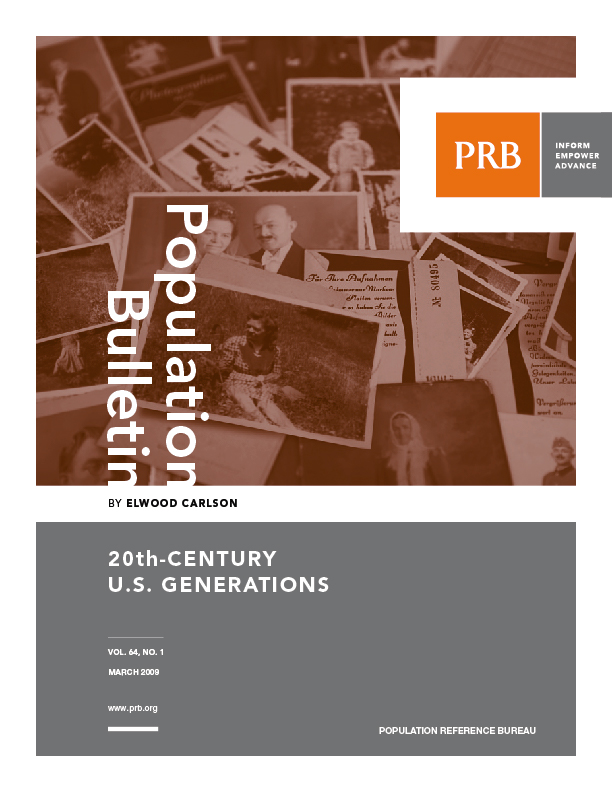Project: KIDS COUNT
2016 KIDS COUNT Data Book: How Are Children Faring?
The KIDS COUNT Data Book provides an up-to-date and detailed picture of how children are faring in the United States, nationally and in each state.
Project: KIDS COUNT
The KIDS COUNT Data Book provides an up-to-date and detailed picture of how children are faring in the United States, nationally and in each state.
(2010) In many countries, the elderly now make up an unprecedented share of the population. This increase in the number of older people has implications for national budgets, labor force growth, and family support systems.
The Population Reference Bureau's 2010 World Population Data Sheet focuses on a rapidly aging world, highlighting many countries' pressures to care for their elderly citizens.
The Population Reference Bureau released its 2010 World Population Data Sheet on July 28, 2010, at the National Press Club in Washington, DC with presentations highlighting global aging, the theme of this year's data sheet.
The 2010 Census will enumerate the resident population of the United States as of April 1, 2010. The census will include everyone living in the 50 states, the District of Columbia, Puerto Rico, the U.S. Virgin Islands, Guam, American Samoa, and the Northern Mariana Islands.

(2009) Unique events, political climates, and social and economic conditions shape each new generation in every society.

(2001) The United States is in the midst of a profound demographic change: the rapid aging of its population. The 2000 Census counted nearly 35 million people in the United States 65 years of age or older, about one of every eight Americans.
HOW WE HAVE CHANGED SINCE THE UNITED STATES WAS A NATION OF 200 MILLION (September 2006) The United States is set to reach a milestone in October. It will become the third country—after China and India—to be home to at least 300 million people.